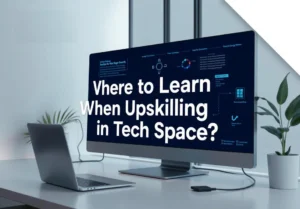The technical job interview can feel like a high-stakes game, especially if it’s your first. You might worry about whether you’ll meet the expectations and how to avoid being just another candidate lost in the shuffle.
To be deemed ‘passable’ in a first technical interview, you need to demonstrate a solid grasp of foundational knowledge, effective communication, and a willingness to learn. But that’s just scratching the surface; there are layers and nuances to this evaluation process that could set you apart from the crowd. Keep reading to uncover essential insights that could be your key to impressing interviewers.
Key Takeaways:
- Master fundamental concepts and core skills in your field, like programming languages and basic algorithms, to create a solid foundation.
- Communicate your thought process clearly during problem-solving, engaging the interviewer and demonstrating your analytical abilities.
- Show genuine enthusiasm for the role and the company through research and thoughtful questions, enhancing your cultural fit.
Know the Basics
Technical job interviews often hinge on a solid grasp of core concepts. Depending on your field, certain fundamental skills will catch an interviewer’s attention. For software development roles, proficiency in languages like JavaScript, Python, or Java is essential. Don’t just memorize syntax; strive to understand how to apply these languages in real-world scenarios.
Data structures and algorithms are also paramount. Expect questions that test your knowledge of lists, trees, and algorithms like sorting and searching. Be prepared to articulate not just “what” these concepts are, but “why” they’re important in software development or system design.
For fields like IT support or networking, familiarize yourself with concepts like TCP/IP, DNS, and basic troubleshooting steps. When faced with a technical question, interspersing terminology with concise explanations showcases your understanding and hints that you’re more than just a text-book learner.
Make sure you can walk through your thought process confidently. It’s not just about knowing the right answer; it’s about demonstrating how you got there. Understanding the basics well will establish a strong foundation during the interview.
Effective Problem Solving
Interviewers love seeing problem-solving skills in action. It’s often not about getting the right answer immediately but rather how you approach a problem. Start by breaking problems down into manageable chunks.
For instance, face a coding question and jot down a few key points before diving into the code. Clarify the requirements and discuss your approach out loud. This not only shows your thought process but also engages your interviewer.
Imagine you’re given a question like, “How would you optimize a function to handle large data sets?” You could start by talking through time complexity and space complexity. Explain how you might use data structures like hash maps to enhance efficiency.
A unique perspective can come from real-life examples. Share a specific instance from past projects where you faced a challenging problem. Talk about your thought process, the solutions you tried, and how you iterated toward the final result.
This storytelling aspect makes your technical skills relatable and memorable. Plus, it illustrates your ability to troubleshoot and adapt. Bring that spirit of inquiry to the table, and you’ll likely leave a positive impression on your interviewer!
Communication is Key
Articulating your thought process during a technical interview can set you apart. It’s not just about getting to the right answer; it’s about how you get there. Interviewers want to see your problem-solving approach and your ability to break down complex ideas.
When faced with a question, verbalizing your reasoning can demonstrate your analytical skills and confidence. For instance, if a coding problem stumps you, don’t just sit in silence. Talk through what you’re considering—explain your initial approach, any constraints you’re thinking about, and how you’d iterate on your solution. This creates a dialogue, allowing the interviewer to gauge your mindset.
Another key point is to tailor your communication style to your audience. Avoid jargon that’s specific to your past experiences unless you take the time to explain it. Instead, focus on being clear and concise. Use analogies or simple examples that reflect your understanding but make them relatable.
Lastly, practice makes perfect. Do mock interviews with friends or use online platforms where you can get feedback. The more you articulate your thoughts, the more naturally it will come to you in real interviews.
The Role of Enthusiasm
Your genuine interest can be the differentiator in an interview. It’s important not just to know the technical skills required, but to express enthusiasm for the role and the company. Employers often look for candidates who can fit into their company culture and show a willingness to grow and learn.
One effective way to convey this is through research. Before the interview, explore the company’s projects, values, and recent achievements. When you can reference specific aspects of the company that excite you, it signals to the interviewer that you’re keen on becoming part of their team. For example, if the company recently launched an innovative product, share what excites you about it and how it aligns with your skills.
Additionally, use body language to express your enthusiasm. Maintaining eye contact, smiling, and having an open posture can make a big difference in how your interest is perceived.
Consider asking questions that reflect your passion for the company. Instead of more common queries, like “What’s the team structure?” aim for those that show you’ve done your homework, such as “How do the projects in this role align with the company’s long-term goals?” This demonstrates that you’re thinking about contributing meaningfully from day one, setting a positive tone for your candidacy.
Preparing with Mock Interviews
Mock interviews are a fantastic tool to gain confidence and hone your responses. Think of them as a dress rehearsal for the big day. They’ll help you get comfortable with the technical questions you might face and give you a chance to practice articulating your thoughts clearly.
Try these steps for effective mock interviews:
Simulate the Environment: Find a quiet space and time your responses. This creates a more authentic experience so you can adjust to pressure.
Focus on Common Questions: Research typical technical interview questions related to your field. Practice answering them out loud, which can reveal gaps in your knowledge.
Seek Feedback: After each mock, ask for constructive criticism. This could come from peers or mentors who understand the industry.
Record Yourself: Listening to your responses can highlight areas of strength and where you need improvement. It’s a candid way to see yourself through the interviewer’s lens.
Balance Theory with Practice: Discuss theoretical concepts but tie them back to practical experiences or examples. This duality shows depth in your understanding.
Mock interviews aren’t just about getting the right answers; they’re about showing your thought process and making authentic connections. Embrace the practice, and you’ll not only refine your answers but also build the confidence you need to shine.
Common Pitfalls to Avoid
Getting through a first technical interview can feel like walking a tightrope. Here’s how to stay balanced and passable:
One critical mistake candidates make is underestimating the importance of communication. You may have the technical chops, but if you can’t explain your thought process, you might lose the interviewer right off the bat. Always narrate your approach while solving problems—this showcases both your technical skills and your ability to communicate.
Another common pitfall is failure to ask questions. Not inquiring about team dynamics or company culture can signal a lack of interest. Prepare a few insightful questions beforehand that show you’re genuinely curious about the role and the organization.
Here are additional missteps to monitor:
Neglecting the Basics: Sometimes, candidates rush into complex problems without confirming their understanding of fundamentals. Don’t skip foundational knowledge—assess a problem’s requirements thoroughly before jumping in.
Getting Stuck on a Problem: If you hit a wall, it’s okay to acknowledge it and discuss what steps you’ve taken to approach it. Failing to address this can make you appear unprepared.
Avoiding these pitfalls doesn’t just make you passable; it helps you stand out in the sea of applicants. Focus on effective communication, engage with your interviewer, and you’ll navigate your first technical interview with confidence.
Insights from Recent Studies
Research shows entry-level candidates in technical fields benefit from a solid grasp of core concepts rather than a deep-dive into niche topics. Employers often prioritize skills like problem-solving, basic programming knowledge, and adaptability. A study from 2023 highlighted that 75% of hiring managers look for candidates who can demonstrate a basic understanding of the technologies relevant to the position.
Here’s what counts as “passable” for your first technical job interview:
– Communication Skills: Employers favor clear communicators. Be ready to explain your thought process in layman’s terms.
– Hands-On Experience: Even if it’s from personal projects or internships, any practical experience shows initiative and makes you more relatable.
– Basic Tech Skills: For software roles, knowing a programming language and basic data structures can suffice. For IT positions, understanding networks and troubleshooting basics can go a long way.
– Cultural Fit: Companies seek individuals who will mesh well with their team. Show enthusiasm for the company’s missions and values.
By honing these key areas, you’ll likely tip the scales in your favor, even without extensive experience.
Post-Interview Etiquette
A strong follow-up can transform a good interview into a stellar opportunity. After the interview, send a thank-you email within 24 hours. This is not just polite; it reiterates your interest. Keep it concise but personalize it. Mention a specific conversation from the interview or highlight how your skills would benefit the team.
Here’s a suggested structure for your follow-up:
- Subject Line: Keep it relevant and clear: Thank You – [Your Name]
- Greeting: Address the interviewer directly.
- Express Appreciation: Thank them for their time and insights.
- Mention a Highlight: Reference something specific discussed that reinforced your interest.
- Reiterate Interest: Clearly state your enthusiasm about the opportunity.
- Close: Thank them again and express eagerness for the next steps.
Consider sending a LinkedIn connection request afterward. It’s a simple way to keep the conversation going and establish a professional rapport.
By being thoughtful and intentional with your follow-up, you can leave a lasting and favorable impression.



